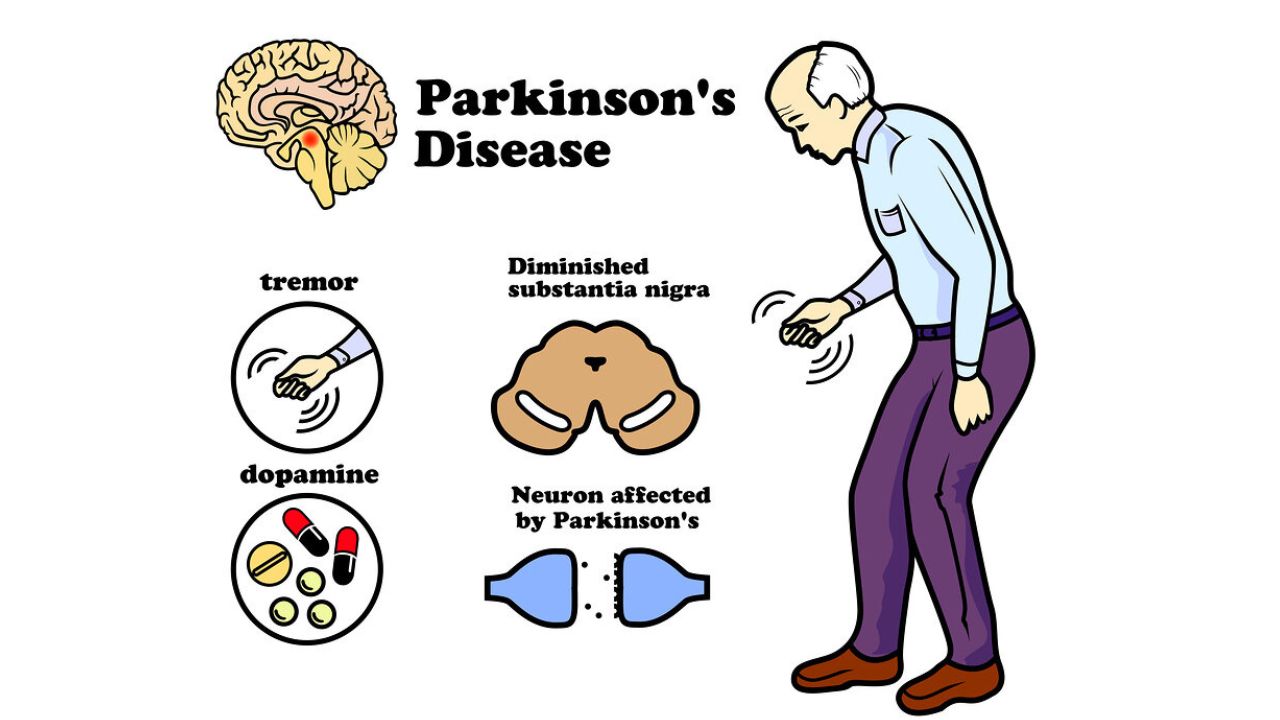Parkinson’s Disease: An Overview
Parkinson’s disease progressively affects movement and results from a reduction in dopamine production by brain nerve cells. Dopamine is essential for communication between brain regions responsible for movement and coordination. As dopamine levels diminish, controlling movement becomes increasingly difficult. Consequently, the condition worsens over time, making it a chronic illness for many individuals.
Symptoms of Parkinson’s Disease
The symptoms of Parkinson’s disease vary but generally include:
- Tremor: Uncontrollable shaking, often starting in a limb, most frequently the hand or fingers.
- Bradykinesia: Slowness of movement, making simple tasks time-consuming and challenging.
- Rigidity: Stiffness in the trunk, neck, and limbs, causing pain and limiting the range of motion.
- Postural Instability: Unsteady posture, leading to frequent falls.
- Dementia: Cognitive decline in some advanced cases.
- Digestive Dysmotility: Issues such as constipation and excessive sweating.
Causes of Parkinson’s
While the exact cause of Parkinson’s disease remains unknown, both genetic and environmental factors contribute. Possible causes include:
- Genetic Mutations: Specific genetic variations can increase the risk.
- Environmental Factors: Exposure to certain toxins may contribute to the disease.
- Toxins: Certain pesticides and heavy metals are suspected of increasing risk.
Risk Factors for Parkinson’s
Several risk factors are associated with an increased likelihood of developing Parkinson’s disease:
- Age: The risk increases significantly after age 60.
- Heredity: Having a close relative with Parkinson’s increases the risk.
- Gender: Men are more likely to develop Parkinson’s than women.
- Exposure to Toxins: Prolonged exposure to certain chemicals.
Prevention of Parkinson’s
While the exact causes of Parkinson’s are not fully understood, some measures may help reduce the risk of developing the condition:
- Reduce Caffeine Intake: Limiting consumption of caffeine in tea, coffee, and cola.
- Green Tea: Drinking green tea may have protective effects.
- Exercise: Regular cardiovascular exercise improves overall brain health and may help reduce the risk of neurodegenerative diseases.
Conclusion
Parkinson’s disease is a complex and progressive disorder with symptoms that gradually worsen over time. Recognizing the symptoms early and understanding the risk factors can help manage the condition more effectively. While there is no known cure, adopting a healthy lifestyle and taking preventive measures may help reduce the risk and improve the quality of life for those affected.





